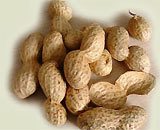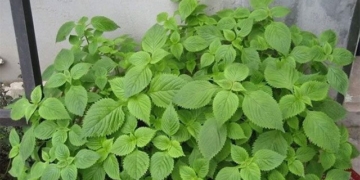Patients with lung cancer who experience copious white foamy sputum that is easy to expel, along with a white and slimy tongue coating or a fear of cold, should avoid consuming fatty foods, seafood, peanuts, and sweet potatoes.
 |
Patients with lung cancer should avoid peanuts |
The occurrence of lung cancer is linked to air pollution, tobacco addiction, and dietary habits. Smokers not only absorb toxic substances from cigarettes but also deplete their body’s vitamin C levels, leading to weakened immunity. A diet high in meat and seafood with insufficient fresh vegetables can also result in inadequate vitamin C intake, increasing the risk of localized cancer in the respiratory system.
Therefore, many experts believe that dietary restrictions are crucial in the treatment process for lung cancer.
First and foremost, it is essential to avoid tobacco: Smoking lowers the vitamin content in the respiratory system, causing cancer to spread or worsen. Additionally, tobacco is a heat-inducing substance that contains harmful impurities such as nicotine, which can severely irritate the lungs and bronchi, particularly in cases where cancer is already present. It leads to increased mucus production in the respiratory tract, constant sputum accumulation, and raises the levels of carcinogenic substances.
Traditional Eastern medicine has long indicated that smoking damages the lungs, leading to excessive mucus production and accumulation, resulting in coughing, increased sputum, hemoptysis, and significantly worsened symptoms, potentially leading to death.
Dietary restrictions should be tailored to the symptoms and condition of each individual. If the primary symptom is excessive sputum, dietary choices should be based on the sputum’s color, consistency, and ease of expulsion.
White sputum that is foamy, easy to expel, accompanied by a white and slimy tongue coating, or a fear of cold: Avoid greasy, fatty foods such as fatty pork, rich chicken, fatty duck, shrimp, crab, salmon, and other seafood. Do not consume cold beverages and avoid peanuts and sweet potatoes, as they can increase mucus and worsen the condition.
If the sputum is yellow, relatively thick, and difficult to expel, accompanied by a yellow and slimy tongue coating, one should choose foods that can help dissolve mucus and also have a cooling effect, such as pears, rock sugar boiled with radish, or persimmons. Avoid greasy, spicy foods (such as black pepper, mustard powder, curry powder, chili, alcohol), as well as smoked and grilled items. Also, avoid walnuts and peanuts.
If there is blood in the sputum or hemoptysis, in addition to strictly avoiding the aforementioned foods, patients should also refrain from consuming rough-textured foods and avoid fried, roasted, or smoked items.
For those with a weak constitution, it is advisable to consume mild, nutritious, and easily digestible foods such as lean pork, boiled beef, lotus seed porridge, and coix seed. When nourishing the body, it is also important to pay attention to dietary restrictions. If experiencing bloating, loose stools, a white and slimy tongue coating, one should limit or avoid dairy, sugar, pickled vegetables, raw cold fruits, and greasy foods. If experiencing thirst, weight loss, a red tongue, and hemoptysis, one should avoid spicy foods, which can generate heat and harm yin. If the weakness is severe enough to require supplements like ginseng, it is important to avoid eating root vegetables and drinking strong tea.
Patients with lung cancer who have undergone radiation or chemotherapy and are experiencing loss of appetite or diarrhea should focus on light, fresh foods that are free of oil and grease, consuming moderately nutritious items. Neglecting dietary restrictions can not only cause severe reactions after radiation and chemotherapy but also impair the function of the spleen and stomach, exacerbating the condition.




















































